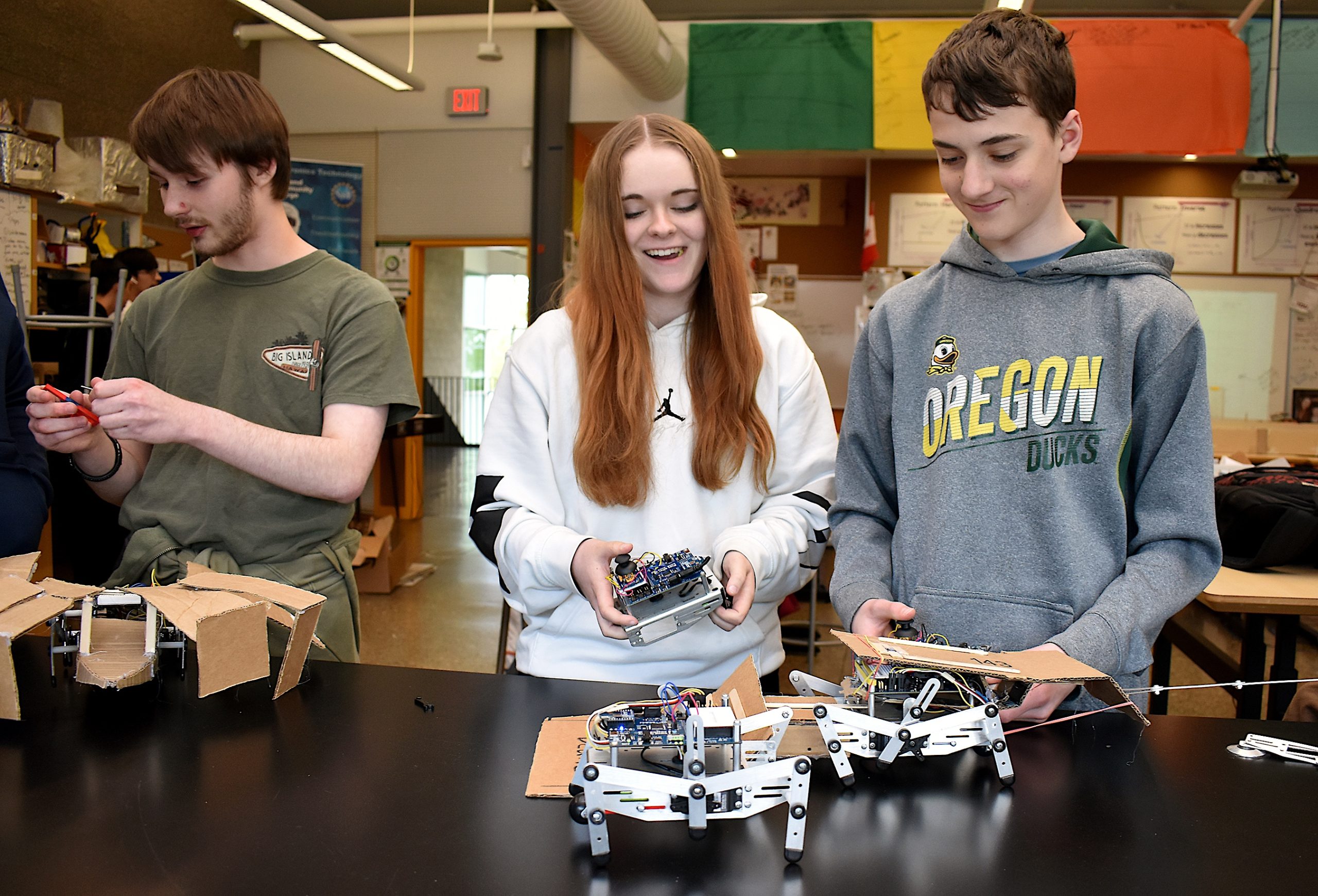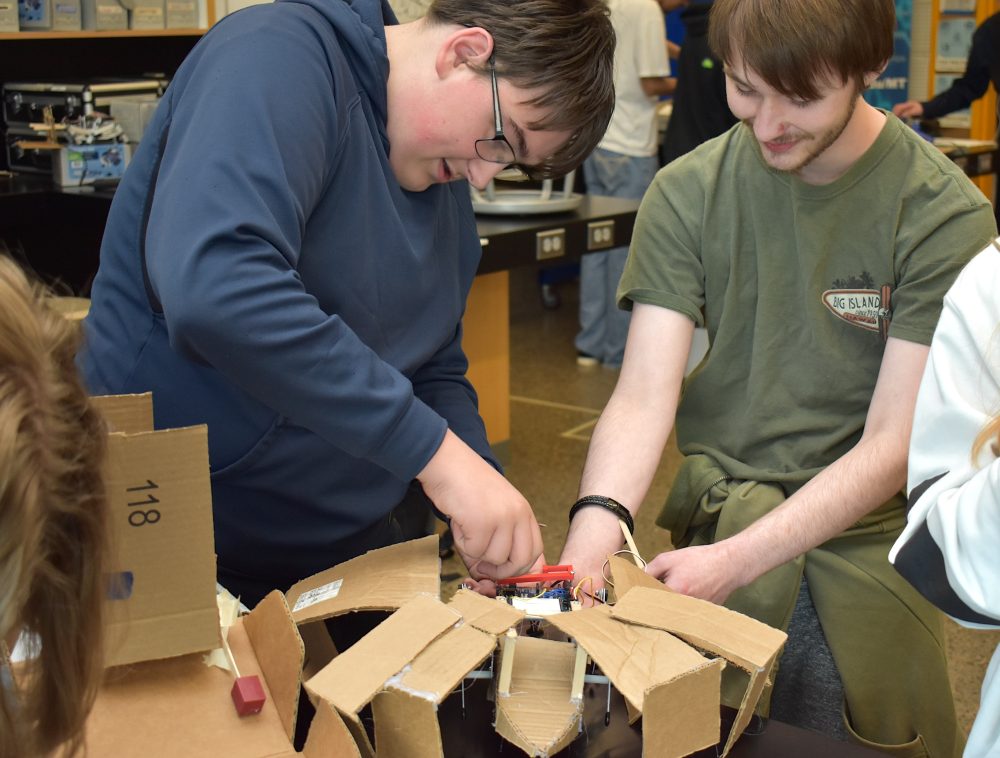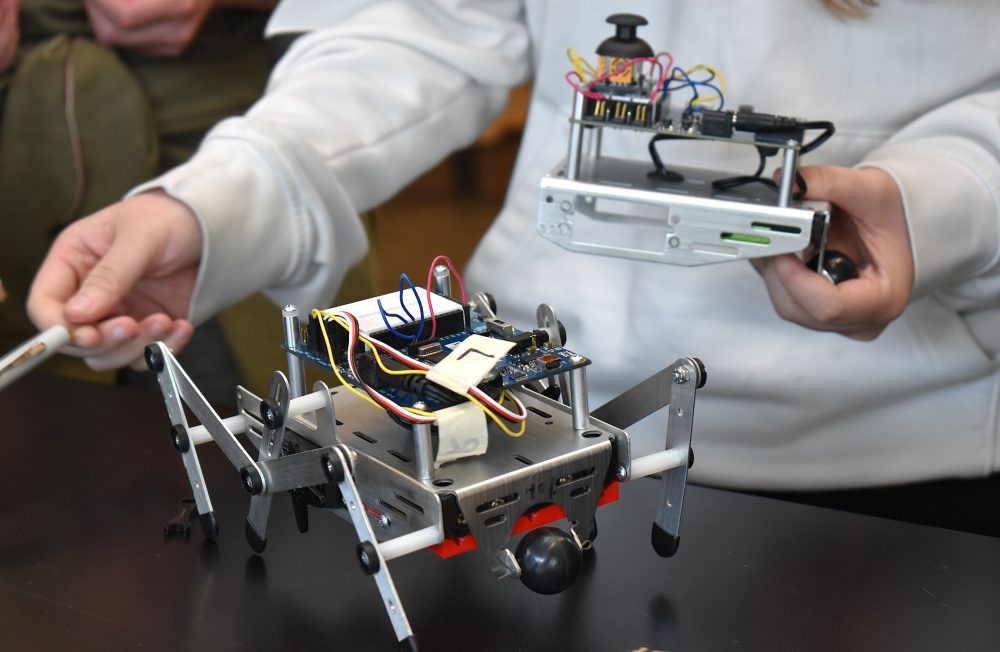This content was published: July 29, 2024. Phone numbers, email addresses, and other information may have changed.
PCC’s dual credit program builds pathway to careers for Forest Grove youth
Photos and story by James Hill
-
With a dearth of workers, semiconductor industry needs to attract new workers from under-represented communities
-
PCC’s dual credit mechatronics program at Forest Grove High School develops the skills of youth interested in high-tech careers
Portland Community College’s PACTEC Program, or known as the Portland Area Career and Technical Education Consortium, is creating an avenue for youth to build interest in advanced manufacturing.
Forming a collaborative alliance between eight local school districts, and supporting Beaverton and Hillsboro school districts, PACTEC fosters career and technical education (CTE), recognizing its pivotal role in preparing high school students to become the workforce of the 21st century.

Semiconductor Training
PCC has built a healthy semiconductor pathway to address the worker shortage. From short-term introductory courses to the industry like Quick Start to two-year degrees in microelectronics and electronic engineering, PCC offers many options to learn the principles of advanced manufacturing that provide pathways to living wage jobs and long-term careers in semiconductors.
“Following the awarding of the CHIPS Act to Intel, we are so excited to see more local workforce opportunities for high school students,” said Katrina Stein, program coordinator for PACTEC. “The Forest Grove Mechatronics program has been well-connected with PCC’s Microelectronics Program and this continued industry alignment will give students from the region more access to these new jobs.”
To help grow the semiconductor workforce, a key mechatronics program is making a difference when future workers are young. Forest Grove High School’s series of mechatronics classes are a meticulously designed collaboration with industry partners and the college’s Microelectronics Technology Program. Aimed at equipping students with foundational hands-on troubleshooting skills, particularly relevant to the semiconductor industry, this course serves as a stepping stone for aspiring semiconductor equipment/process technicians and beyond.
Since its inception, the FGHS Mechatronics Program has demonstrated considerable success, with an average enrollment of 400 to 500 semester signups per year. Due to its importance, the program received an Oregon Department of Education CTE Revitalization Grant in 2017 as well as Measure 98 funds, which has helped the program to expand.
“We have grown from a single year-long ‘Intro to Engineering’ course in 2017-18 into an eight semester sequence of mechatronics courses and a comprehensive ODE Program of Study,” said John Worst, Forest Grove mechatronics teacher. “Primarily, this rapid growth is directly connected to the success that PCC Microelectronics Technology has with forming students into semiconductor industry career professionals.”
Students’ exposure to the FGHS Mechatronics and PCC’s Microelectronics programs extends beyond the classroom through various outreach initiatives. These include hands-on robot demonstrations for ninth-grade students, industry presentations, and alumni testimonials, fostering a culture of engagement and innovation.
Integral to the program’s success is its integration of dual-credit courses in collaboration with PCC faculty. Offering courses ranging from mechanical and electronic troubleshooting to 3D printing and semiconductor manufacturing, students gain practical skills while earning college credits, enhancing their readiness for the workforce.
“Typically, students enter our mechatronics class with a general interest in technology and hands-on work, but when we cast the vision of hands-on technical work in the semiconductor industry with PCC MT as the connective tissue, that’s when we see students really get on board,” Worst added.
Looking ahead, FGHS is exploring new avenues to enrich its curriculum, including the introduction of a capstone class focused on mechatronic product development. With plans to pitch this concept at the next PCC Microelectronics Technology Program advisory meeting, the Forest Grove program continues to evolve, ensuring its relevance in an ever-changing industry landscape.
Madelyn Porter, a freshman at Forest Grove, said she got into the class because she always enjoyed computer programming. Thanks to a helpful older brother who steered her towards mechatronics and the fact her grade school offered a fun robotics class, the 15-year-old has been hooked ever since. Her future goals entail following her brother to Oregon State University to learn software engineering and eventually work for a company like Intel.
“It’s super satisfying when you build something and see your project work out,” Porter said. “First couple of weeks were hard. There was a lot of programming and wiring, but I was so glad I stuck around. I really like this class. I tell classmates to please join the mechatronics classes, especially girls. We need more women in mechatronics. First couple of weeks people just quit, but they need to realize they need to stay on because it will work out. It did for me.”
James Houx is a 17-year-old junior and peer tutor for the mechatronics class. His dad is an engineer, which created an interest on his part for the field. Houx joined the first mechatronics class after the pandemic and was hooked. He is aiming to go to PCC and explore engineering and mechatronics.
“I’m really involved in all of the mechatronics stuff; it’s kinda like a safe place for me,” he said. “It’s one of few classes I consistently look forward to even if there is a test. It’s fun, and I have a good time and the teachers are fantastic too.”



